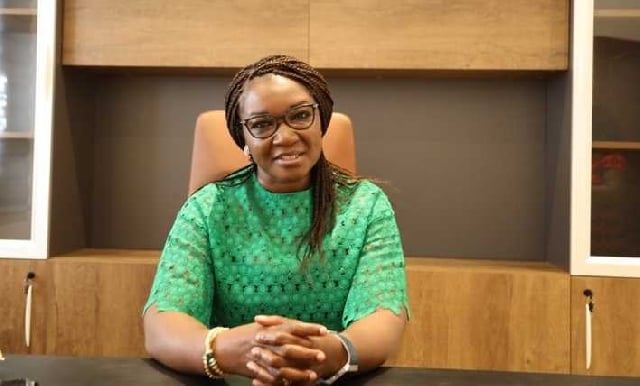Joyce Bawah Mogtari, serving as the Campaign Spokesperson and Special Aide to former President John Dramani Mahama, has voiced strong criticisms regarding President Nana Akufo-Addo’s political maneuvers ahead of the upcoming elections. In a Facebook post dated October 30, Mogtari posits that the current President is engaged in a profound quest for a third term. This assertion comes as she perceives a pattern of evasion from President Akufo-Addo, suggesting that he is attempting to sidestep accountability for the various controversies and challenges that have characterized his administration. Mogtari’s remarks indicate a belief that the President is avoiding public scrutiny aimed at his governance, particularly concerning policies that have yielded mixed results during his tenure.
Mogtari’s critical stance hinges on her assertion that President Akufo-Addo is not only seeking to prolong his influence but is also strategically positioning himself to ensure the continuity of the New Patriotic Party’s (NPP) rule through Dr. Mahamudu Bawumia, the party’s flagbearer. She interprets the vigorous campaigning being undertaken by the President as an intentional move to insulate himself from the backlash associated with his administration’s performance. Mogtari’s viewpoint suggests that the President is orchestrating his public appearances and statements in a way that aims to divert attention from the issues that have plagued his government, which include economic difficulties and public dissatisfaction.
In an attempt to analyze President Akufo-Addo’s strategy, Mogtari argues that his backing of Dr. Bawumia is more than just a support for the party’s leadership transition; it is a calculated effort to ensure that the policies and legacies of his administration endure beyond his time in office. By endorsing Bawumia, the President may believe he is safeguarding his political legacy, hoping to mitigate any potential criticism that may arise following a change in leadership. Mogtari’s comments point to a broader narrative in Ghanaian politics, where outgoing leaders often seek to influence their successors to maintain ideological continuity and shield their legacies from adverse evaluation.
Mogtari adds a particularly personal touch to her critique by alluding to what she perceives as an inability on the part of Dr. Bawumia to effectively campaign or address pressing questions regarding governance. This observation underscores her belief that Bawumia may not possess the requisite political acumen or public appeal to independently carry the party’s banner forward. Recognizing the challenges facing the NPP in terms of public perception and performance, Mogtari suggests that President Akufo-Addo feels compelled to take an active role in guiding the campaign, which she hints may reflect a lack of confidence in Bawumia’s capabilities.
In a broader context, Mogtari’s commentary encapsulates her concerns over the political landscape in Ghana, highlighting the struggles faced by the Akufo-Addo administration amidst a backdrop of social and economic challenges. She contends that this atmosphere of uncertainty necessitates a strong defense mechanism from the President, which she sees as a motivation to cling to power. This scenario is emblematic of the complex relationship between governance and electoral ambitions in Ghana, where the electorate’s mood can significantly influence the strategies adopted by political leaders.
Ultimately, Joyce Bawah Mogtari’s remarks serve as a broader critique of the current political strategy being employed by President Akufo-Addo. Her insights offer a lens through which to assess the implications of pursuing a third term and the potential impacts on Ghana’s political dynamics. As the elections approach, Mogtari’s observations reflect a critical engagement with the themes of accountability, legacy, and leadership that are increasingly relevant in the discourse surrounding Ghana’s democratic processes. Her views resonate with those who question the sustainability of political practices that prioritize personal ambition over responsive governance and public trust.














